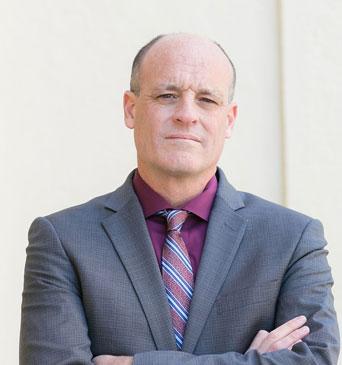confidential & free consultation
confidential & free consultation
Gender discrimination involves a person being treated unequally or disadvantageously because of their gender, although it is not necessarily of a sexual nature. Common examples include harassment or discrimination that is based on a person’s sex, gender identity, or gender expression, and gender discrimination often involves preconceived notions about what gender is, how gender should look, or how gender is performed.
Gender discrimination can limit the ways people express and identify themselves, but it can also isolate or marginalize people who do not conform to historical, limited, and traditional views of gender, especially people who have two or more minoritized identities. Transgender, non-binary, and gender non-conforming people are often the most common kinds of individuals who are subject to this type of discrimination, although women frequently face gender discrimination because of sexism, prejudice, stereotyping, or discrimination on the basis of gender.
The United States Equal Employment Opportunity Commission (EEOC) states that sex discrimination involves treating an applicant or employee unfavorably because of their sex, including their sexual orientation, gender identity, or pregnancy. Discrimination against a person because of their gender identity, including transgender status or sexual orientation, will be considered discrimination because of sex in violation of Title VII of the Civil Rights Act of 1964.
Some of the most common examples of gender discrimination include, but are not limited to:
The Equal Pay Act of 1963 amended the Fair Labor Standards Act to protect against wage discrimination based on sex and protects people of all sexes. All forms of compensation are covered under the act, including salary, overtime pay, bonuses, life insurance, vacation and holiday pay, cleaning or gasoline allowances, hotel accommodations, reimbursement for travel expenses, and benefits.
When there is an inequality in wages between people of different sexes who perform substantially equal jobs, employers must raise wages to equalize pay but cannot reduce wages. Compensation discrimination complaints under the Equal Pay Act will require jobs being compared to have substantially equal skill, effort, and responsibility performed under similar working conditions in the same establishment.

Title VII of the Civil Rights Act of 1964 prohibits employers from treating people differently or less favorably because of their sex, which includes pregnancy, sexual orientation, and gender identity. It also prohibits employment decisions based on stereotypes about abilities and traits associated with a person’s gender, and employment discrimination based on gender identity or sexual orientation.
Federal protections under Title VII apply even when state or local laws have different positions. All people, regardless of their gender, are protected from sex discrimination under Title VII.
The Pregnancy Discrimination Act (PDA) of 1978 is a federal statute that amended Title VII of the Civil Rights Act of 1964 to prohibit sex discrimination on the basis of pregnancy. It covers discrimination on the basis of pregnancy, childbirth, or related medical conditions.
The PDA was a direct response to the United States Supreme Court decision in General Electric Co. v. Gilbert, 429 U.S. 125, 97 S. Ct. 401 (1976), in which the Supreme Court reversed the District Court for the Eastern District of Virginia’s holding that the exclusion of pregnancy-related disability benefits from General Electric’s employee disability plan violated Title VII and ruled that pregnancy discrimination was not a form of sex discrimination under the Civil Rights Act of 1964.
Young v. United Parcel Serv., Inc., 135 S. Ct. 1338, 574 U.S. 972, 575 U.S. 206, 191 L. Ed. 2d 279 (2015) was another United States Supreme Court case in which Peggy Young was a UPS driver who claimed she was illegally discriminated against when she was denied a workplace accommodation made available to other employees with similar physical restrictions. The Supreme Court concluded that her case should not have been dismissed on summary judgment, as she should have had the opportunity to prove that UPS, by refusing her an accommodation it made available to many other restricted workers, committed pregnancy discrimination.
When Young finally became pregnant after a series of miscarriages, her doctor imposed a restriction on how much she could lift. She was working as an “air driver” for UPS, a delivery driver who carried lighter letters and packs for UPS that arrived by air.
Young requested a light-duty assignment, but was denied despite the fact that UPS made the same accommodations available to three major groups of employees: people injured on the job, people eligible for accommodations under the Americans with Disabilities Act, and people who had lost their commercial driver’s licenses due to medical conditions. Young lost her job and health insurance, only being allowed to return to work after giving birth.
California also has state laws protecting against gender discrimination. The California Equal Pay Act prohibits employers from paying employees less than employees of the opposite sex for equal work.
Under the California Equal Pay Act, an employee must prove that they are being paid less than an employee or employees of the opposite sex who are performing substantially similar work. After an employee makes this showing, an employer must prove that it has a legitimate reason for the pay difference.
The California Fair Employment and Housing Act (FEHA) further prohibits harassment based on protected categories against employees, applicants, unpaid interns, volunteers, or contractors, and harassment is prohibited in every workplace, even those with less than five employees. FEHA provides protection from discrimination, retaliation, and harassment in all terms and conditions of employment based on a person’s race, color, religion, sex or gender, reproductive health decision-making, gender identity, gender expression, sexual orientation, marital status, medical condition, military or veteran status, national origin, ancestry, disability, genetic information, request for family care leave, request for leave for an employee’s own serious health condition, request for pregnancy disability leave, retaliation for reporting patient abuse in tax‐supported institutions, age (over 40), or criminal background.
Section 703(e)(1) of Title VII, 42 U.S. Code §2000e-2(e)(1) establishes that it is not an unlawful employment practice for an employer to hire and employ employees on the basis of their religion, sex, or national origin in certain instances where religion, sex, or national origin is a bona fide occupational qualification reasonably necessary to the normal operation of a particular business or enterprise. After an employer’s exclusion of a protected class from a particular job is proved or admitted, the employer can use the BFOQ exception to justify restricting a job to members of a particular sex, religion, or national origin.
Dothard v. Rawlinson, 433 U.S. 321, 97 S. Ct. 2720 (1977) was a landmark case in which the United States Supreme Court examined the issue of a same-sex BFOQ for contact positions in Alabama’s maximum security, all-male prisons. The case stemmed from the Alabama Board of Corrections’ rejection of Dianne Rawlinson’s employment application, Rawlinson had applied for a position as a correctional counselor but was rejected for failing to meet the minimum 120-pound weight requirement established by a state statute.
Rawlinson filed a sex discrimination charge with the EEOC, received a right-to-sue letter, and then filed a class complaint in the federal district court, challenging the statutory height and weight minimums as violative of Title VII and the Fourteenth Amendment. While the suit was pending, the Alabama Board of Corrections adopted Administrative Regulation 204, which established gender criteria for correctional counselor contact positions in maximum security prisons.
Since most of Alabama’s prisoners were held in all-male maximum security prisons and most correctional counselor jobs fell within the contact position classification, the effect of the regulation was to disqualify women from competing with men for about 75 percent of the available correctional counselor jobs. The district court decided the case in Rawlinson’s favor and the United States Supreme Court affirmed the district court’s holding that the statutory height and weight requirements violated Title VII but reversed the lower court’s rejection of the BFOQ defense.
While the Supreme Court noted that the BFOQ exception was intended to be a narrow exception to the general prohibition against sex discrimination, it found that Regulation 204 fell within that narrow exception because of the particular factual circumstances of the case. Using the Supreme Court’s Dothard analysis, the Court of Appeals for the Eighth Circuit affirmed a lower court’s rejection of a BFOQ claim for a correctional officer position in an Iowa medium security reformatory for men in Gunther v. Iowa State Men’s Reformatory, 612 F.2d 1079 (8th Cir. 1980), noting that a lower court properly distinguished the facts before it from those before the Supreme Court in Dothard.
Gender discrimination cases can be very complicated issues for people to resolve on their own, but California employment attorney David Mara helps clients all over California with these types of cases. Our firm will represent you on a contingency fee basis so you will not have to pay anything unless we win or settle your case.

Mara Law Firm understands the tremendous challenges people are dealing with in gender discrimination cases and we will do everything within our power to help you exercise your rights. Call (619) 648-2550 or contact us online to set up a free confidential consultation.
If you are in need of employment litigation attorney in California or have been injured overseas while under a military contract and are in need of a defense base act attorney. Please fill out the form below and contact us immediately for a FREE consultation.
all fields are required*